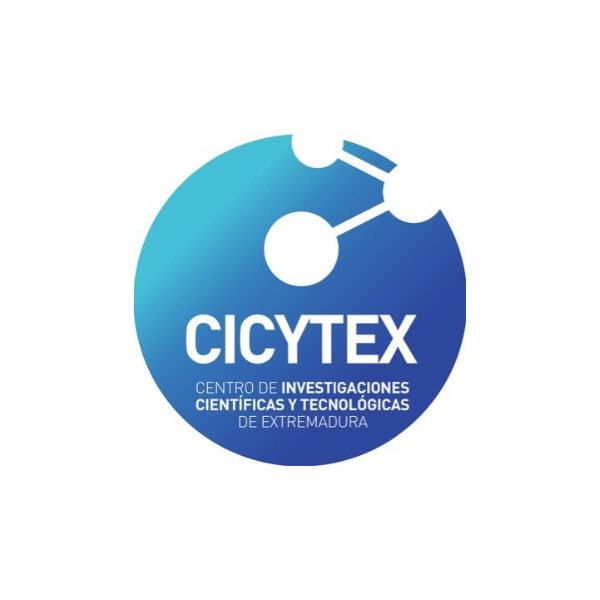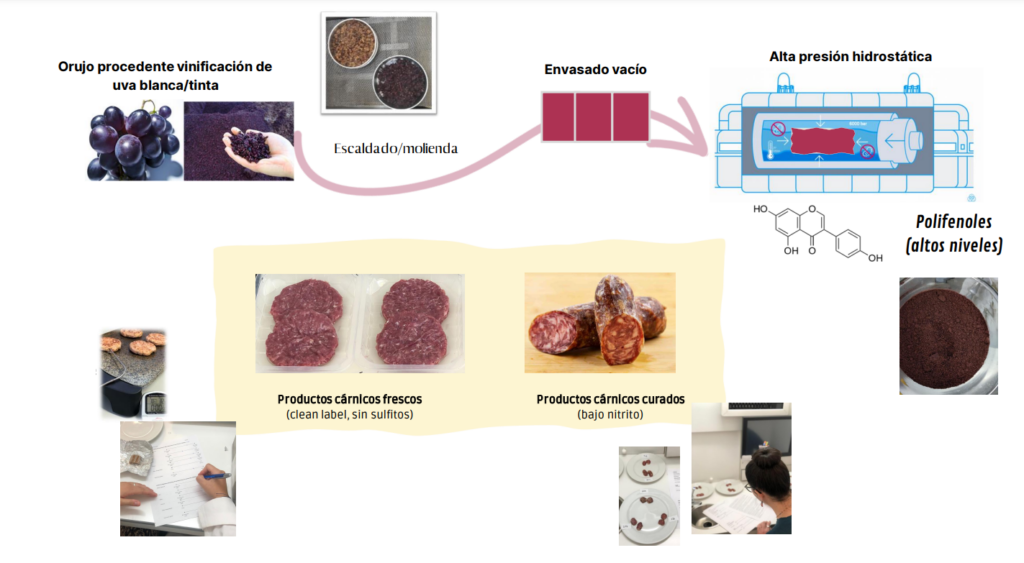
The wine industry is one of Extremadura’s largest producers of subproducts. Handling this is very
costly and has a major environmental impact. The most abundant subproducts of this sector are the pomaces, which are made up of the seeds, skins, scrapings and pulp left after grape-pressing operations. These subproducts are rich in bioactive compounds showing antimicrobial and antioxidant activity, as well as being very high in soluble fibre. In recent years, different techniques for reclaiming these subproducts have been studied.
Consumers are ever more concerned about the effects of the nutritional composition of foodstuffs on health, and this is especially clear in the meat sector. In the specific case of meat products, reducing the level of synthetic additives like nitrites and sulphites is another of the main foci of interest in the industry.
• Stabilising red and white grape pomace with high pressure allows it to be applied directly to meat products and avoids the need to extract bioactive compounds using solvents.
• Reclaiming red/white grape pomace can yield ingredients with antioxidant and antimicrobial activity that can be applied to making meat products last longer.
• The ingredients obtained from pomace can extend the useful life of meat products, and even allow reducing the use of unhealthy additives such as nitrifier salts (used in cured meats) and sulphites.

Status of the technology:
Laboratory tested
Area:
Agri-food
Information:
To get in touch with the people in charge of this offer, please contact FUNDECYT-PCTEx by email: transferencia@fundecyt-pctex.es
